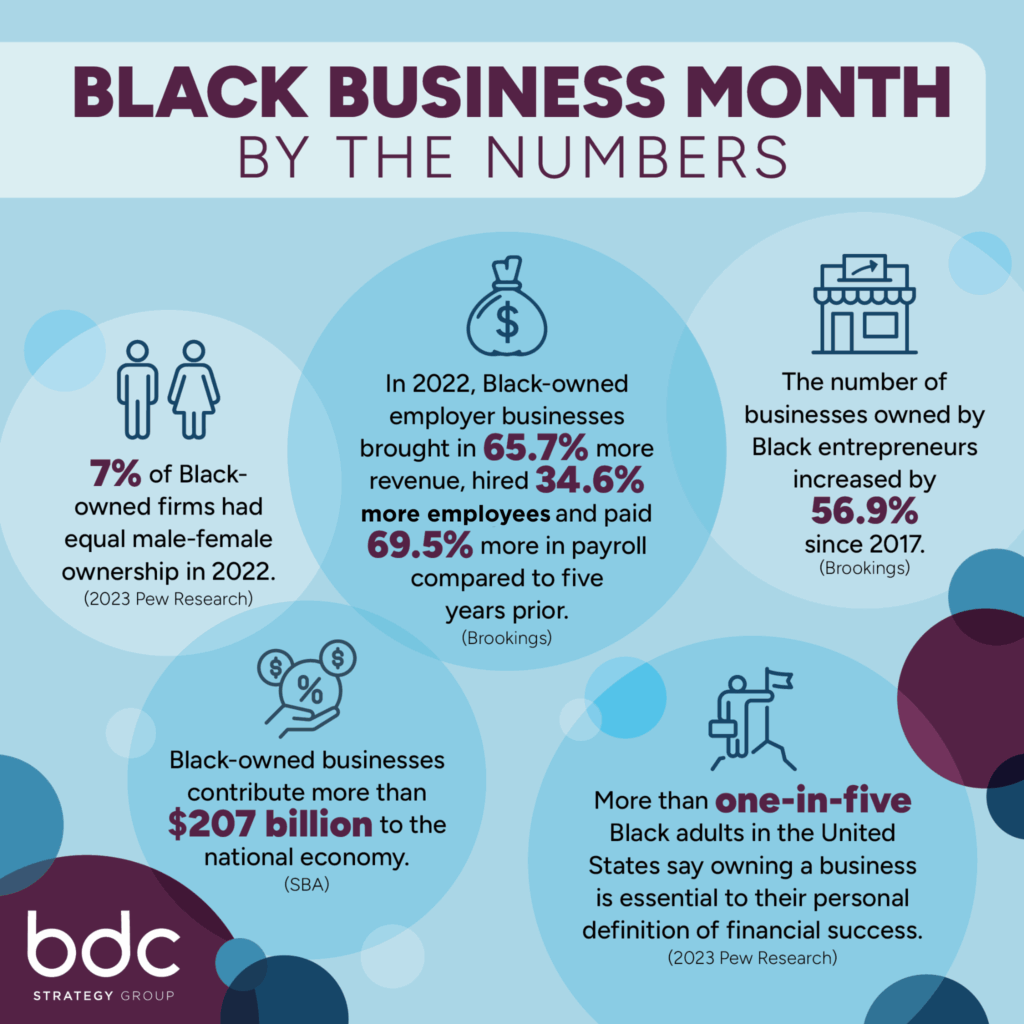August is Black Business Month, an opportunity to recognize and celebrate the contributions of Black-owned businesses to the economy and to our communities. As we honor their impact, we must also address the growing shifts in corporate supplier diversity strategies, changes that will undoubtedly shape the future of economic inclusion.
Why Black-Owned Businesses Matter
Black-owned businesses play a crucial role in driving local economies, creating jobs, and addressing long-standing disparities in access to capital and opportunity. According to the U.S. Census Bureau, there are over 3 million Black-owned businesses in the United States contributing over $207 billion in revenue while creating 3.56 million jobs.
These businesses are often rooted in their communities, reinvesting their earnings locally and serving as role models for future entrepreneurs. Beyond economics, they represent innovation, resilience, and leadership. Supporting Black businesses is not just good for business, it’s essential to building a more equitable economy. As we recognize the economic and cultural contributions of Black-owned businesses, it’s equally important to examine the challenges they face (customer acquisition, funding, access), including the shifts happening in supplier diversity.
From Supplier Diversity to Impact Sourcing
Despite progress over the past decade, supplier diversity programs are facing mounting political and legal backlash. Some corporations are scaling back or rebranding their efforts (similar to the changes to DEI), and supplier diversity budgets are being scrutinized or reduced. This shift raises concerns about long-term support for minority-owned businesses and the infrastructure built to level an unequal playing field.
In response, the National Minority Supplier Development Council (NMSDC) suggests companies pivot toward impact sourcing, a strategy that frames supplier diversity not as a social or charitable good, but as a lever for innovation and economic growth. As NMSDC CEO Ying McGuire shared in a recent email, “Impact sourcing is more than tracking spending; it’s about measuring true economic value—job creation, community revitalization, and opportunity generation in places we often overlook, yet where their future customers and markets are growing.”
NMSDC also notes that impact sourcing can shift how spending creates long-term economic impact. It positions corporations to meet ESG goals, expand into emerging markets, and build stronger, more inclusive supplier ecosystems.
How Agencies Can Help
Strategic communications agencies like BDC can support this evolution by:
- Helping clients reframe their procurement messaging from spend percentage to impact, inclusion, and innovation,
- Developing stories that capture real-world outcomes like job creation, community revitalization, small business growth,
- Creating impact reports, case studies, and narratives that resonate with stakeholders from CFOs to community organizers.
Looking Forward
Black Business Month is the perfect moment to reflect not only on what Black-owned businesses have achieved, but also on what’s needed to ensure their continued success. As we honor the remarkable strides of Black entrepreneurs, let’s also recommit to procurement practices that acknowledge their role as critical drivers of innovation and economic equity. While supplier diversity may be evolving, the need for intentional inclusion of Black-owned businesses has not. As companies reassess their supplier strategies, let’s ensure that Black businesses remain at the heart of economic opportunity.





